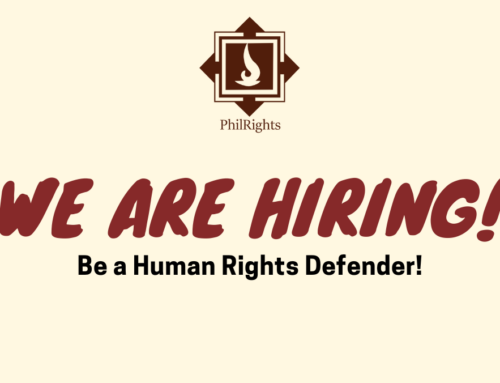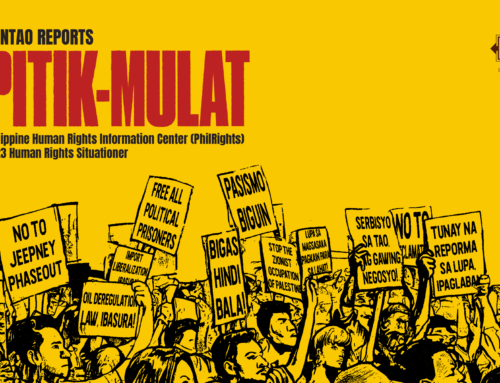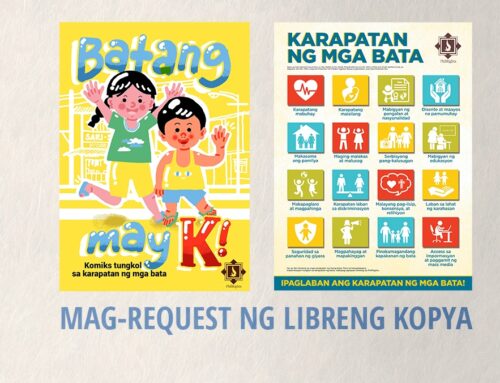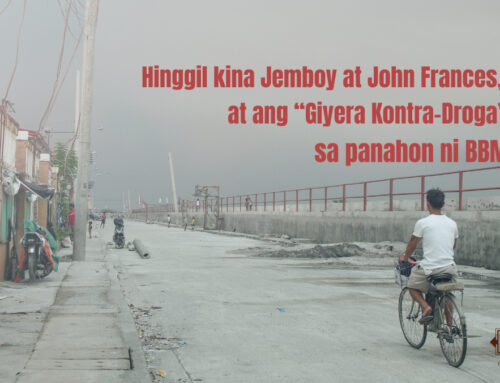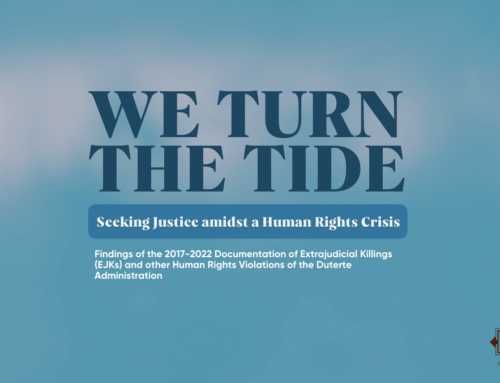by C. Bernal
The June declaration by Fatou Bensouda, prosecutor of the International Criminal Court, that she has she filed a request (https://www.icc-cpi.int/Pages/item.aspx?name=210614-prosecutor-statement-philippines)for an investigation of the current administration’s so-called war on drugs has once again sparked conversations about the human rights violations relating to the government’s bloody campaign.
While human rights groups hailed the ICC prosecutor’s latest move, questions remain about how a potential investigation and trial may occur given the Philippines’ withdrawal from the ICC which took effect in 2019.
This and more were raised during the virtual forum “Crimes against Humanity and the International Criminal Court: Nature, Procedure, and Implication on the Philippine Situation” organized by the UP institute of Human Rights (UP IHR) and the Institute of International Legal Studies (IILS) alongside the Integrated Bar of the Philippines (IBP).
Prof. Elizabeth A. Aguiling-Pangalangan contextualized the discussion by providing the audience with the background of the investigation and the ICC, recalling the history of the ICC and the Philippines’ War on Drugs.
H.E. Judge Raul C. Pangalangan, who served as the forum’s main speaker, and who recently retired as a trial judge for the ICC, further expounded on the pertinent processes of the ICC and the nature of the case and investigation. Pangalangan emphasized that when the Philippines ratified the Rome Statute, the State agreed to its terms, including the fact that the ICC retains jurisdiction over all crimes committed while the State is a signatory.

Prof. Andre C. Palacios focused on the applicability of international law with Philippine law, examining the cooperation between the two in the event of an investigation. Palacios underscored that the Philippines sees national laws as separate from international law. This dualist view will therefore play into the dynamics once an ICC investigation commences.
The role of the victims in the investigation were discussed by Atty. Ruben Carranza as he expounded on their possible involvement in the investigation and the reparations for the crimes committed against them while recognizing the limitations of the ICC. Carranza noted that the victim representation process with the ICC is now open, and that victims, their families, or representatives can submit “representations” – opinions, concerns, and expectations relating to the prosecutor’s request to investigate.
The forum was concluded by Dr. Socorro L. Reyes who tackled the effects of the War on Drugs on the women left behind by the victims and how the investigation can further their cause. Reyes emphasized the need to remember that it is often women who are left to carry the burden of leading the households impacted by drug-related killings. These women are also often the ones taking charge of seeking justice for their slain family members.

As the ICC prosecutor’s request for an investigation provided hope for many Filipinos, especially victims of the so-called drug war, this forum emphasized the reality that the ICC is just one avenue for justice out of many. The ICC investigation entails a long legal process of back and forth before attaining justice and reparations for the victims. The forum highlighted the need to explore other courses of action that may be taken, including the filing of criminal and/or administrative cases against perpetrators and calling for an investigation by the UN Security Council, among others.
Watch the full video of the forum here.




